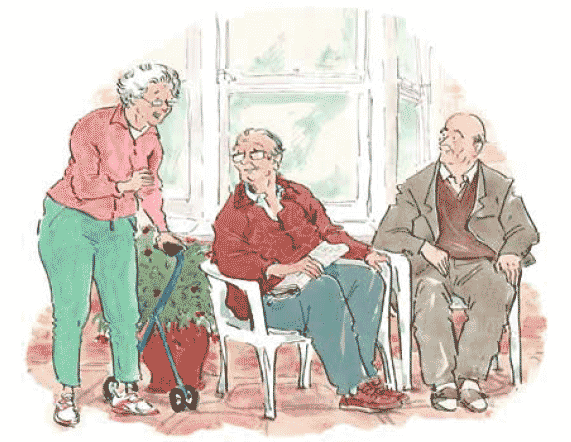Elderly Relative Going Into Care?

Making decisions on care for elderly relatives is rarely straightforward, as there are a minefield of different options and funding considerations. Sarah Hartley, wills and probate lawyer at Malcolm C Foy & Co in Doncaster and Rotherham, offers some practical advice while you navigate these to find the right solution for your loved one.
Assessing mental capacity
Where an elderly person lacks mental capacity, the process of moving them into care can be particularly challenging. If they have already made a lasting power of attorney while they had mental capacity, this will help. There are two types of LPA:
- health and welfare – allows attorneys to make decisions on care homes and ongoing medical decisions; and
- financial – allows attorneys to make decisions on funding costs, managing bank accounts and selling property.
Court of protection deputyship order
If there is no power of attorney in place, then in certain circumstances, particularly where there are no close relatives or where there are disagreements within the family on care issues, it could be necessary to ask the Court of Protection to appoint a deputy. This will enable a designated person to make decisions for the elderly person in the way an attorney could, or for the court to make a one-off decision on behalf of the individual.
Funding and assessment
Funding considerations are a key part of the process of choosing the right care home. Depending on the level of their assets and income, your relative may have to contribute towards their care home fees and in some cases fund their own fees in their entirety.
If your relative qualifies for local authority funding, the local authority has a responsibility to carry out a needs assessment and prepare a care plan. If your relative would like to move to a care home that is more expensive than the funding amount they will receive, a family member can pay the difference by way of a ‘top-up’ fee.
NHS continuing care funding
NHS continuing healthcare funding is available in some circumstances to cover healthcare costs, including the full cost of residential care. If an individual requires a lot of nursing support, they may be eligible. It is not means tested and so can be available to individuals who are self-funding. If you think that this may apply to your relative, the first step is to arrange an assessment through a GP. The criteria for receiving NHS continuing healthcare funding are strict and it can be difficult to secure. If you think your relative fulfills the criteria and they are turned down, there is an appeal process you can invoke. It is also worth reapplying, even where your relative has been refused in the past, if their health needs have subsequently deteriorated.
NHS-funded nursing care may also be available. This provides for a set amount of funding towards specific nursing costs each week, but does not cover the full cost of residential nursing care.
Concerns in care
Once your loved one is in care, their health or mental capacity may begin to deteriorate, and you may need to be more involved in making decisions for them. Without a lasting power of attorney you would not be included in making decisions about their daily care routine, such as diet, dressing and bathing, as well as decisions about medical treatment and life-sustaining interventions. If you later have concerns about the care home, including the level of care delivered or behaviour of their employees, you would need a power of attorney to move your relative to a different care home.
Selling their home
More often than not, when a person goes into care their home needs to be sold. You will only be able to manage this on their behalf if you have a financial affairs power of attorney or deputyship order in place.
Make or review their will
When an elderly relative goes into care, it is an appropriate time to get them to make or review an existing will to reflect any changes in circumstances. In particular, if they have to sell their home and use the capital to fund care fees, they may need to review cash legacies and other gifts in their will. If your elderly relative has lost mental capacity, it is possible in certain circumstances to apply to the court of protection to make a statutory will or to make changes to a current will if it is in their best interests.
For further advice on making powers of attorney, reviewing or making a will, NHS continuing funding and care home issues, contact Sarah Hartley at Malcolm C Foy & Co
Contact us on 01302 340005 or 01709 836866 or by email at shartley@malcolmcfoy.co.uk
The contents of this article are for the purposes of general awareness only. They do not purport to constitute legal or professional advice, and the law may have changed since this article was published. Readers should not act on the basis of the information included and should take appropriate professional advice upon their own particular circumstances.11.05.16
